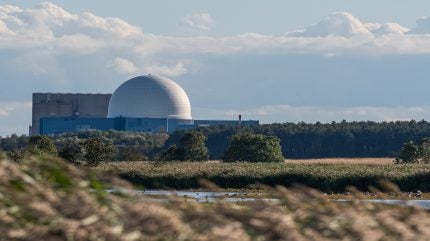
The UK government has announced a shift in its nuclear energy policy to approve additional nuclear power plants across England and Wales.
The move is part of the Prime Minister’s Plan for Change, which includes reforms to planning rules to facilitate the construction of small modular reactors (SMRs) for the first time.
The government’s plan includes several key reforms, such as incorporating mini-nuclear power stations into planning rules, scrapping the existing list of eight designated sites and removing the expiry date on nuclear planning rules.
A Nuclear Regulatory Taskforce will also be established, which will report directly to the Prime Minister and spearhead improvements in regulations to attract more builders.
The taskforce will focus on aligning UK regulations with international standards to facilitate quicker approvals for reactor designs.
The changes are expected to streamline the planning process, allowing developers to identify and propose sites more efficiently.
The inclusion of new nuclear technologies, such as SMRs and advanced modular reactors, will provide flexibility and potentially lower construction costs and timelines.
Prime Minister Keir Starmer stated: “My government was elected to deliver change. I’ll take the radical decisions needed to wrestle Britain from its status quo slumber, to turbocharge our plan for change.”
The government’s strategy to revitalise the nuclear sector is expected to create thousands of highly skilled jobs and provide clean, secure and more affordable energy.
The initiative marks a departure from previous policies and focuses on growth and the dismissal of outdated regulations that have hindered development.
The UK, once a pioneer in nuclear technology, has not built a new nuclear power station since 1995.
The current administration aims to change this by dismantling the regulatory barriers that have led to investment declines and left the UK with only one nuclear power plant under construction, Hinkley Point C.
Despite the push for expansion, the government is giving assurances that there will be strict criteria for reactor locations, community engagement and environmental standards.
The UK’s commitment to nuclear energy is part of a broader strategy to achieve energy independence and reduce reliance on fossil fuels, particularly in the context of volatile global oil and gas markets.
The government has also committed to further funding for projects such as Sizewell C and is progressing with the SMR competition.
Companies such as X-Energy, EDF Energy and Microsoft UK have welcomed the government’s decision.
EDF Energy CEO Simone Rossi stated: “As a major operator, investor and developer, EDF welcomes the proposals designed to speed up new nuclear projects in the UK and unlock economic growth.
“Nuclear is essential to a secure, low carbon energy system and is the ideal partner to renewables. There is a great opportunity to build new infrastructure across England and Wales, to replace ageing stations and take advantage of available skills, existing grid connections and supportive communities.”



